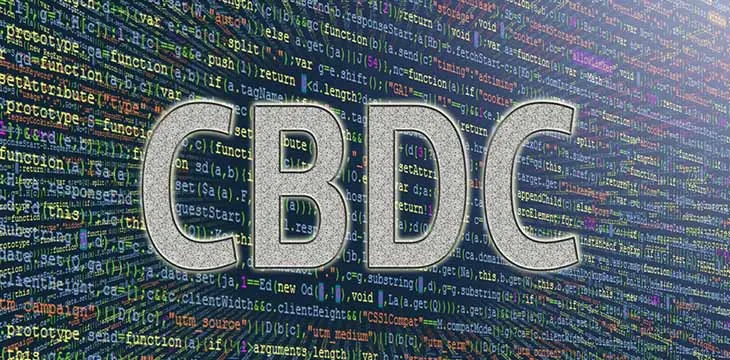|
Getting your Trinity Audio player ready...
|
A joint report from the Cato Institute and YouGov on the prospects of a U.S. central bank digital currency (CBDC) reveals a grim future for the digital dollar over fears of government control.
The report disclosed that only 16% of respondents support the launch of a digital dollar, while nearly 34% of citizens opposed the CBDC. Per the report, almost 50% of Americans remain undecided about whether or not they favor a government-backed digital currency.
A reason for the number of fence-sitting on the issue might be because of the lack of mainstream information about the CBDC. The Cato Institute 2023 CBDC National Survey noted that 72% of Americans are unfamiliar with the concept of CBDC, while 26% confirm having a working knowledge of the offering.
Perhaps, the strongest opposition to CBDCs emanates from Republicans despite having a significant amount of familiarity with the concept than Democrats. On the other side of the spectrum, Democrats are more likely to be receptive toward a digital dollar, with 56% of the demographic without an opinion on CBDCs.
Regarding gender, the survey noted that men are 22% more likely to support the launch of a CBDC than women. Older citizens are more likely to view CBDCs skeptically than younger millennials and Gen Z, with only 3% of citizens over 65 supporting the move.
Across the board, participants expressed concerns over the government surveillance of spending and the likelihood of freezing funds. The relative success of private enterprises handling digital transactions has seen Americans “trust them to handle their money more than the federal government.”
“After learning about some of the potential costs and benefits of a CBDC, Americans appear wary. They are concerned about the potential for government surveillance and control of how they spend their money as well as the impact a CBDC could have on cash,” the report read.
Even stiffer opposition from officials
The prospects of a digital dollar received a heavy blow after Florida Governor Ron DeSantis disclosed plans to introduce new laws to ban the use of CBDCs in the state. He described attempts at launching a digital dollar as a way for the federal government to weaponize the financial sector via CBDCs.
“Today’s announcement will protect Florida consumers and businesses from the reckless adoption of a ‘centralized digital dollar,’ which will stifle innovation and promote government-sanctioned surveillance,” said DeSantis.
Despite the growing opposition to a CBDC, the U.S. Federal Reserve has yet to make an official statement signaling the launch of a digital dollar. However, the preemptive resistance may see the regulators ditch the idea in its entirety.
To learn more about central bank digital currencies and some of the design decisions that need to be considered when creating and launching it, read nChain’s CBDC playbook.
Watch: Central Bank Digital Currencies and Blockchain: The view from the Swiss National Bank

 07-23-2025
07-23-2025 





